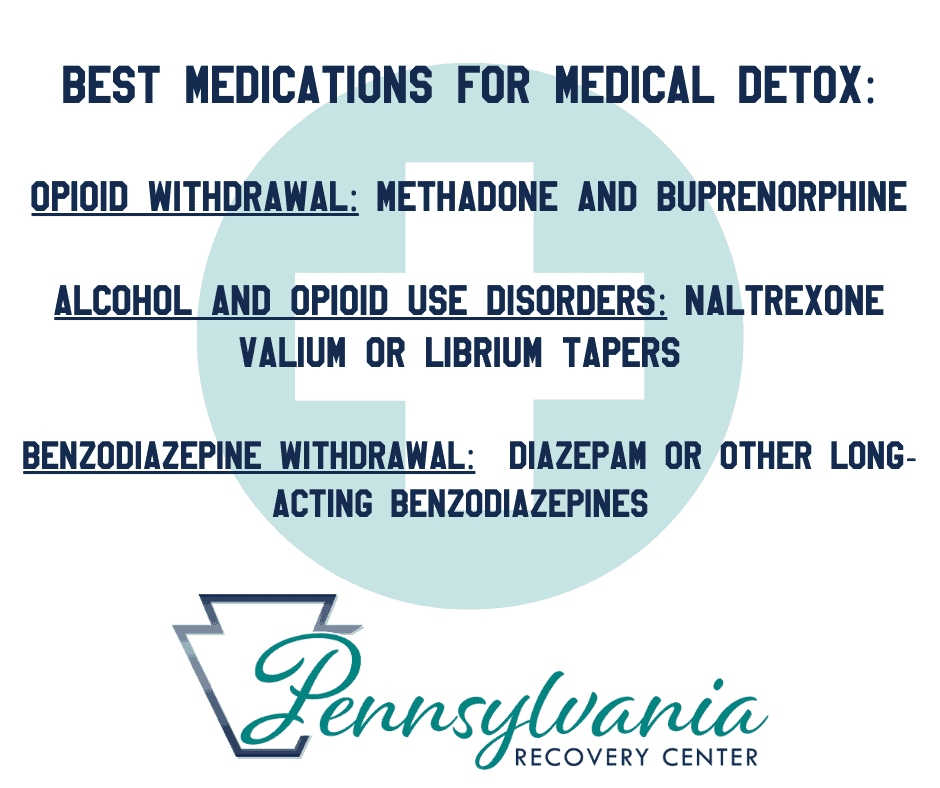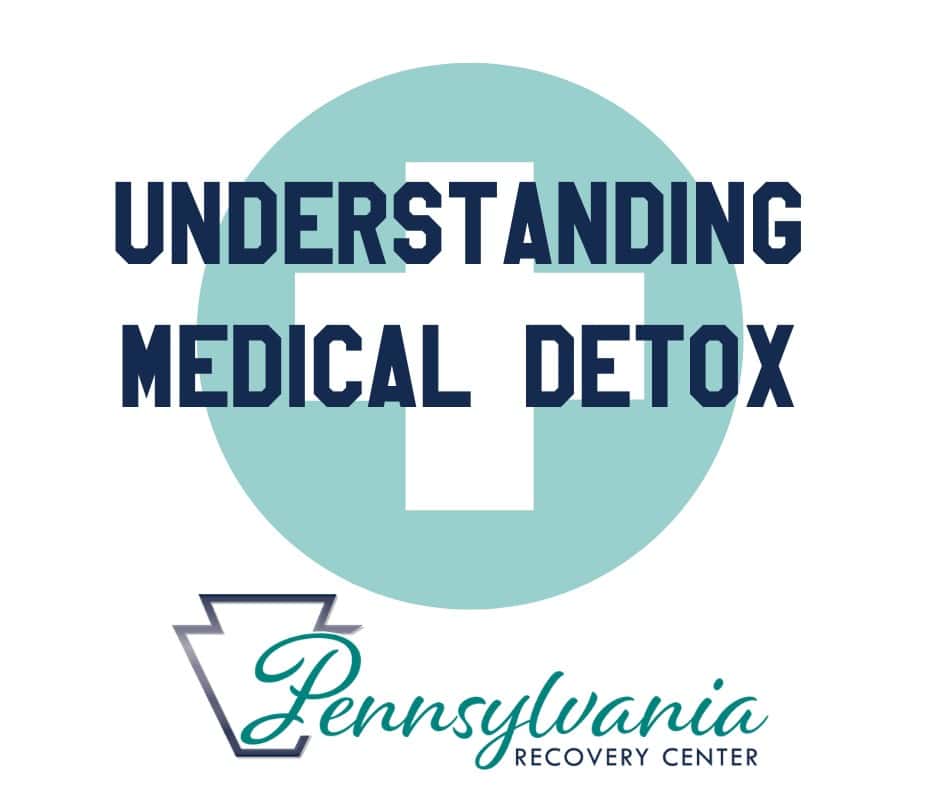Medical Detox in Pennsylvania
In the world of addiction recovery, medical detox stands as a crucial cornerstone for achieving a healthier, drug-free life. Understanding the intricacies of medical detox can shed light on its significance and guide individuals toward a successful path to recovery. In this comprehensive blog, we will delve into the science behind medical detox, exploring specific substances, their withdrawal symptoms, optimal medications, detox duration, best practices, and the underlying factors that drive substance use.
-
The Science of Medical Detox:
Medical detox is a meticulously supervised and medically-assisted process designed to help individuals safely withdraw from addictive substances. Its primary objective is to manage the challenging withdrawal symptoms, prevent complications, and prepare the body for subsequent phases of addiction treatment. Cravings and physical withdrawal are often associated with continual use and relapsing behavior. Medical Detox is the most successful treatment modality to free yourself of drugs and alcohol.
-
Specific Substances and Their Effects:
Various substances have their unique effects on the human body, leading to specific withdrawal challenges during detox. Let's explore the most common substances and their associated withdrawal symptoms:
- Alcohol: Withdrawal from alcohol can manifest as anxiety, tremors, nausea, seizures, and, in severe cases, delirium tremens, which can be life-threatening.
- Opioids: When withdrawing from opioids like fentanyl or heroin, individuals may experience flu-like symptoms, muscle pain, anxiety, and intense cravings, often making it difficult to quit without professional support.
- Benzodiazepines: Detoxing from benzodiazepines can be particularly challenging, leading to seizures, insomnia, heightened anxiety, and panic attacks.
- Stimulants: Withdrawal from stimulants such as meth or adderall can cause depression, fatigue, and an increased appetite, posing psychological and physical hurdles during the detox process.
-
Best Medications for Medical Detox:
To ease the discomfort of withdrawal and support the detoxification process, healthcare professionals may utilize specific medications depending on the substance and individual needs:
- Opioid Withdrawal: Methadone and buprenorphine are commonly used to manage opioid withdrawal symptoms and reduce cravings for opioids.
- Alcohol and Opioid Use Disorders: Naltrexone is an effective medication used to treat both alcohol and opioid use disorders by blocking the pleasurable effects of these substances. Valium or Librium tapers will be used for alcohol use disorder depending on the severity.
- Benzodiazepine Withdrawal: During benzodiazepine detox, healthcare providers may prescribe diazepam or other long-acting benzodiazepines to taper off usage gradually.
-
Detox Duration:
The duration of medical detox varies based on factors such as the specific substance abused, the severity of addiction, and the individual's overall health condition. Typically, medical detox can last anywhere from several days to a couple of weeks.
-
Best Practices in Medical Detox:
For a successful medical detox process, adherence to best practices is essential. Here are some crucial steps to ensure a safe and effective detoxification journey:
- Professional Supervision: Medical detox should always be conducted under the watchful eye of trained healthcare professionals to ensure safety and proper medical management.
- Personalized Treatment Plans: Each individual's detox plan should be tailored to their specific needs, medical history, and substance abuse patterns, allowing for a more effective and comfortable detoxification experience.
- Continuum of Care: After completing medical detox, transitioning into a comprehensive addiction treatment program such as rehab or partial hospitalization is vital for maintaining long-term recovery and addressing the root causes of addiction.
-
Understanding the Motivations for Substance Use:
People turn to substances for various reasons, seeking relief from physical or emotional pain, stress, trauma, or mental health issues. Others may start using recreationally and inadvertently develop an addiction due to the substance's addictive properties.
Find Medical Detox If You Are Using
Medical detox serves as an essential foundation for addiction recovery, providing individuals with a safe and supportive environment to withdraw from substances and manage withdrawal symptoms effectively. By comprehending the science of medical detox, specific withdrawal symptoms, and best practices, individuals can make informed decisions on their path to recovery. With professional assistance, personalized treatment plans, and a holistic approach to addiction treatment, individuals can overcome the challenges of detox and embrace a healthier, substance-free future. Remember, seeking help is an act of courage and the first step toward regaining control over your life. Call PA Recovery Center at 610-233-4342 to set up your medical detox now.

Reach out to us now if you need a medical detox
Our team of substance abuse professionals are waiting for your call



